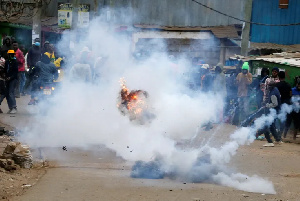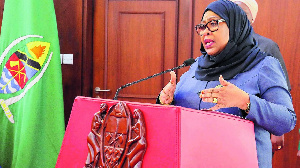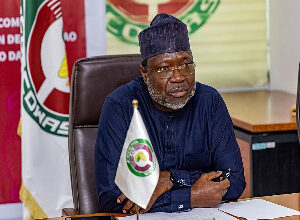Kenyan police tear-gas protesters in latest row over tax hikes

Police officers fired tear gas on Wednesday to disperse protesters in Nairobi, the port city of Mombasa and several other cities, according to footage aired on Kenyan television. “We have ventured out on our own accord,” said Ibrahim Stanley, a protester in Nairobi’s informal Kibera settlement. “We are out here because we are tired.”
Intense confrontations took place on the expressway connecting Nairobi to the main airport, where protesters lit bonfires and toppled fencing. The expressway said toll services had been halted at three stations.
According to local media reports, three schoolchildren were rushed to the hospital in Kangemi on the outskirts of Nairobi after police sprayed tear gas into their school while dispersing protesters.
At least six people were killed on Friday during protests against the taxes, which are contained in a finance bill signed into law by President William Ruto last month. Kenya’s High Court suspended the implementation of the legislation pending a legal challenge, but the government has raised petrol prices anyway.
Opposition leader Raila Odinga, who called the protests, was due to address supporters in Nairobi later on Wednesday, a spokesperson said. Odinga finished second in the last five presidential elections, including last year’s when he lost to Ruto.
Odinga has led a series of protests this year against the high cost of living and alleged election irregularities, demonstrations that have repeatedly degenerated into unrest. That prompted civic leaders to warn against a return to the ethnically charged violence that has plagued Kenya in the past.
The protests were paused in April to allow talks between the government and opposition.
Ruto’s administration said the tax hikes, which include a doubling of the fuel tax and introduction of a levy to fund affordable housing, will raise an extra 200 billion Kenyan shillings ($1.42bn) a year and are needed to deal with growing debt repayments and fund job-creation initiatives.
As of January, Kenya’s external debt stood at $34bn, which Ruto inherited from his predecessor Uhuru Kenyatta.
Annual interest payments on domestic debt alone have surged from 180 billion shillings ($1.34bn) nearly a decade ago when the debt binge started to 680 billion shillings ($5.09bn) this year, heaping pressure on the government’s cash flow, presidential adviser David Ndii said in April.
The opposition says the tax hikes will deepen the suffering of Kenyans at a time when many are already struggling with high prices of basic commodities such as maize flour.
Source: aljazeera.com





